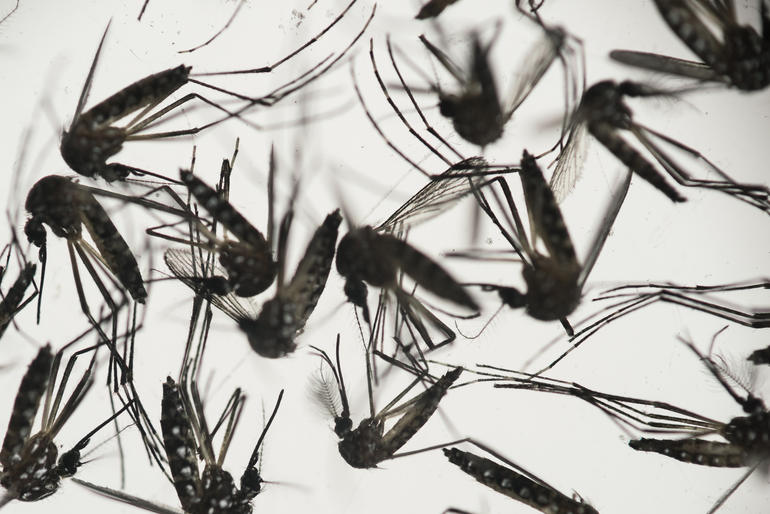Dr Simon Clift, Director of Health Services at Interhealth Worldwide, a specialist provider health services to Christian missions, was speaking as the World Health Organisation (WHO) issued a plan to deal with the virus.
WHO says it will help countries to control Zika virus disease:
- Define and prioritise research into Zika by convening experts and partners
- Enhance surveillance of Zika virus and potential complications
- Strengthen the capacity of laboratories to detect the virus
- Support health authorities reducing mosquito populations
It says $56 million is needed to combat the disease, which is spreading though Latin America and the Caribbean.
It has already been declared a global emergency and is being linked to babies being born with damaged brains and abnormally small heads.
Dr Simon Clift told Premier's News Hour that faith leaders have a big role to play: "We saw in the Ebola response in West Africa that the international community had rather bypassed faith leaders in addressing the Ebola issue, and there's been some research following that to say that faith leaders should be right at the heart of the response."
He said there are some preventative, low-cost options: "Some of the responses won't cost lots of money, so something like controlling mosquito breeding sites is about removing stagnant places of water from around your home or around your church."
The Zika virus has been linked to brain damage in babies, and nerve damage in adults.
On Wednesday, the Vatican formally expressed solidarity with every Latin American country affected by the Zika virus.
Cardinal Bernadito Auza also told United Nations officials that abstinence, and not abortion, was the way forward to countering the outbreak.
Dr Simon Clift added: "You can see how the Church should be involved - what a situation for women in these areas, with the fear in early pregnancy that one infected mosquito bite might affect their unborn child for the rest of its life."
On Tuesday, the WHO says it might be necessary to use controversial methods to wipe out mosquitoes spreading Zika.
Scientists are looking at releasing genetically-modified versions of the insects - as well as ones infected with a special bacteria - to reduce their numbers.
Listen to Premier's Aaron James speak to Dr Simon Clift here:




